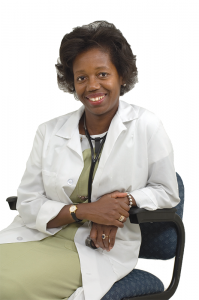By Sharon A. Brangman, M.D.
 Aging is a natural process that starts the minute we are born. Each stage of life has important milestones and adjustments that must be made so that we can enjoy the highest quality or life while we manage life’s joys and challenges.
Aging is a natural process that starts the minute we are born. Each stage of life has important milestones and adjustments that must be made so that we can enjoy the highest quality or life while we manage life’s joys and challenges.
People often say they are “fighting aging” and that they are “anti-aging.” There is nothing wrong with hair dye or getting some “work done” to manage wrinkles or various sags and bags, but the people I have seen who are aging the best are those who accept that aging is a natural part of living. The happiest people accept the aging process and find a way to be grateful for reaching this important time of life. Considering the alternative, aging may not seem so bad.
Here are my top five ways to help you age well.
1. Exercise regularly
You do not have to run a marathon or bench press 500lbs. Most people should take a walk for at least 30 minutes most days of the week. Add two sessions of muscle strengthening exercise for 30 minutes each session. Numerous studies suggest that exercise helps the brain remain sharp and strengthening muscles in the body may help reduce the risk of falls that are very common in older adults. Consider working with a personal trainer for muscle work which decreases the potential for injury. Walking can be a challenge in many parts of our city due to limited sidewalks and winter weather. However, there are many options for indoor walking such as local malls, indoor tracks and inside some gyms. If you take a walk every day with a friend, you double the benefit since you get exercise while you connect with a friend, which brings us to number two.
2. Stay socially connected
Some older adults can lose contact with people when they retire or when friends and family move away. Research shows us that social isolation and loneliness can cause the same serious health problems as if the person was smoking, and can increase the chance of dying too soon. We are fortunate to live in an area that offers many opportunities for older adults to stay connected to people and the community around them. Your local office of aging is a good place to start.
3. Get enough sleep

More and more research is telling us how important it is to sleep each night. This can be a problem for some adults as they get older, due to certain medical problems which should be discussed with your health provider. We still need to sleep seven to eight hours every night as we age, so do not believe the myth that we need less sleep as we get older. Sleeping pills are dangerous and can lead to bad side effects like falls and dementia. It is important to get to the root of the problem and not cover over it with dangerous sleeping pills.
4. Eat healthy foods
Try to eat foods that come from a farm and were not processed in a factory. Processed foods contain ingredients that can raise blood pressure, increase fats in the blood and make the risk for diabetes go up. Cut back on sugar and foods that our bodies turn into sugar as soon as you eat them such as white bread, white rice and white potatoes. Quinoa is a good Rice Alternative.
5. Practice prevention
There are many things we can do to protect our health. Stay off of ladders. Falling off a ladder, even if it isn’t a very tall ladder, can cause injuries that can change your life and reduce your independence. You can also install safety grab rails Melbourne at home to prevent slip and fall injuries. Wear a seatbelt every time you are in a car, even if you are in the back seat. Be sure to get a flu shot every year and get at least one vaccine to help prevent pneumonia.
Finally, remember that aging is not a disease. If you have a health concern, do not simply blame it on old age. Get your health concerns checked out. Find a health care provider who can help you sort out the difference between a normal aging process and medical problem that needs attention.

